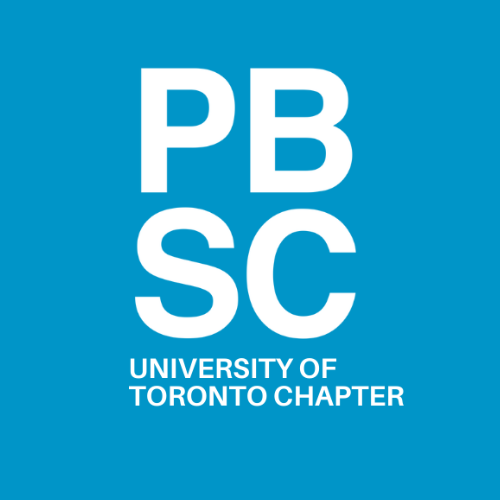CCTEHT Human Trafficking & Municipal Law Research Project
Organization: The Canadian Centre to End Human Trafficking (CCTEHT)
Project Type: legal research and writing
Fields of Law: human rights law; municipal law; criminal law
Positions Available: 1
What is the CCTEHT Human Trafficking & Municipal Law Research Project?
The Canadian Centre to End Human Trafficking (“the Centre”) is a national charity dedicated to ending all types of human trafficking in Canada.
Human trafficking in Canada is occurring at shocking levels. It is a sophisticated, organized crime and that demands sophisticated, coordinated and integrated solutions.
The Centre has been established as the national “backbone” organization working on this issue. The Centre collaborates and works with the various stakeholders dedicated to this issue, including all levels of government, private sector businesses and front line service providers in order to advance best practices and eliminate duplicate efforts across Canada.
The Centre exists to create a national strategy for change.
The Centre’s Goal
Our goal is to mobilize collective action and system change to end human trafficking in Canada.
The Centre’s Mission
To end human trafficking for the purpose of sexual and labour exploitation in Canada by providing strength and support to stakeholders. We will do this through collective action, by creating opportunities to connect and learn from each other and by building capacity, on all levels, to end this abhorrent crime in Canada.
The Centre’s Objectives
Our objectives are specific and measurable and will reflect milestones in our path to ensure that we continue to mobilize collective action and system change to end human trafficking in Canada. We will strive to:
- Function as a catalyst by bringing together relevant stakeholders in order to provide avenues for Survivor’s voices, to share knowledge and to assist the implementation of effective practices through collective action aiming to end sex and labour trafficking.
- Enhance collaboration with representatives of government, private sector businesses and non-profit organizations to create cost efficiency through shared strategy development and due diligence. This will enable cross-sectoral coordination and assist to provide access to networks and specialized skills that currently function ineffectively in silos.
- Advance federal, provincial and municipal policy and programs, aimed at ending human trafficking, advocating for evidence-based measures as well as supporting, undertaking and making available research related to the human trafficking practices.
- Provide an accessible, online resource center with current information and research that will increase awareness and education about the complex problem of human trafficking in Canada.
- Establish a national human trafficking hotline to provide an avenue for victims and Survivors to get assistance and for members of the public to report incidents human trafficking.
The Centre has begun work on a long-term law reform project aimed at addressing human trafficking in the City licensed body rub parlours and the holistic centres(spas) operating as illicitly body rub parlous. The City of Toronto maintains a licensing process for body rub parlours and other businesses where intimate massage is performed. The thrust of the legal research in this field would involve examining the City’s duty to conduct due diligence in the holistic centre and professional holistic association licensing process to prevent, detect, and prosecute human trafficking.
The CCTEHT Human Trafficking & Municipal Law Legal Research Project (“the Project”) will provide two students the opportunity to contribute to a legal research project focusing on one or more of the following topics:
- liability of municipalities that fail to adequately protect vulnerable individuals being issued licenses for work in both licensed and unlicensed body rub parlours;
- history of policy development in the body rub parlour licensing process, especially in regard to human trafficking;
- incidence and reporting of human trafficking in body rub parlours;
- due diligence requirements of by-law enforcement and municipal officials;
- environmental scan of best practises and possible tools in Canada or the U.S. jurisdictions that seeks to end trafficking operations in illicit massage businesses.
Students will conduct legal research under supervision of municipal lawyers at Dentons Canada LLP.
Deliverables:
Student volunteers will conduct legal and policy research to develop a research memo or policy analysis paper. Volunteers may also develop and present a PLE workshop on one of their research topics. Depending on time and lawyer supervisor availability, volunteers may also draft plain language resources, including pamphlets and posters, related to their research topics.
A workplan is required for this project and must be submitted to both the lawyer supervisor and to PBSC by mid-October.
Student volunteers will be expected to work 3-5 hours weekly.
Students may work on a flexible schedule, however they will be expected to meet scheduled deadlines and attend scheduled meetings with the lawyer supervisor and/or organization representatives. Much of the legal research/analysis may be performed remotely, however, the student will be expected to attend ad hoc scheduled meetings in person.
Who can apply?
Any JD student or LLM/SJD student may apply for this project, although upper year students are preferred.
Pre/co-requisite: Legal Research and Writing
Recommended preparation: Administrative Law, Human Rights Law
Student volunteers ought ideally to have experience or demonstrated interest in equity initiatives and a good understanding of the systemic issues and barriers facing diverse communities interacting with law enforcement agencies and officials.
If you are interested in applying for this project, please submit a General PBSC Application Form.
